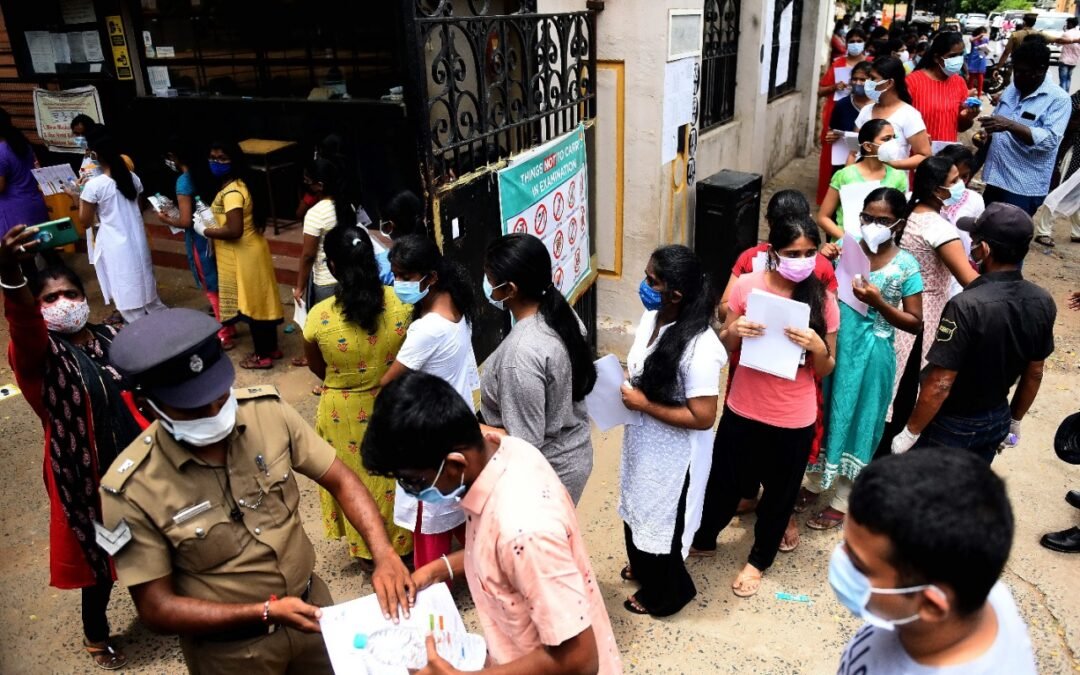Read in : தமிழ்
The Tamil Nadu government’s case against NEET is well established. NEET tramples states rights when it’s the state that can set such policies to suit local conditions.
The Tamil Nadu system of selecting students for medical colleges served its need well, at least in-part. Scoring high in Class 12 exams only required rote learning. But it gave a chance to rural students who may not have studied in the best of schools to seek entry into medical colleges. The argument was that rural students coming from less privileged background will return to serve in their villages after graduation. And Tamil Nadu’s above-par performance in health was attributed in-part to its medical education system.
NEET mars this. Soon after it was introduced, the share of government school students in medical admissions that was already not so big was squished thin. Separate coaching, outside and beyond schools and hence beyond the reach of poor students, is absolutely necessary to get medical admission now. The statistic on how most students passing NEET are repeaters proves this.
But the driver for NEET is now the Supreme Court. The court has been repeatedly stepping in, facilitating NEET and refusing any reversal on it.
But the driver for NEET is now the Supreme Court. The court has been repeatedly stepping in, facilitating NEET and refusing any reversal on it.
Capitation fee collected by private medical and dental colleges was among the main reasons for the court approving NEET. Capitation fee by these private colleges has been the norm in private medical education in Tamil Nadu. Everyone knew it was happening. Huge sums were being collected and massive capital accumulation was happening, feeding businesses and their political reach. But few discussed it in public fora. The media kept largely silent on the issue.
There was a Tamil Nadu state law banning the collection of capitation fee but it was rarely, if ever, actionable in-part because it required a complaint from the student. Politicians or people with heavy political backing run these medical institutions and have tremendous clout across the political spectrum. They continue to be key players not only in business and politics but also in media.
An expose by The Times of India and Times Now more than 10 years ago served to turn national attention to the problem. Just as central bodies such as the Medical Council of India were putting the test in place, the Supreme Court dubbed it illegal in 2013. The court was ruling on a petition that said NEET went against rights of minority educational institutions. A dissenting view was given by Justice Dave who said NEET will stop undeserving students from getting admissions in private institutions by paying huge capitation fees or donations.
In 2016, a five-judge bench headed by the same Justice Dave overturned that verdict, allowing NEET to happen and facilitating central government policy. In several verdicts, orders and observations, various judges have spoken for NEET as a measure to curb profiteering, prevent collection of huge capitation fees rendering medical seats beyond the reach of poor but deserving students, and to stop undeserving students from getting admissions and becoming doctors. The court is driven by a desire to maintain the competence of doctors across the country.
The court is driven by a desire to maintain the competence of doctors across the country.
Last year, the Supreme Court, while ruling on the question of rights of minority institutions, observed against the practice of selling seats violating the rights of meritorious students. The judgment looked at NEET as serving the national interest. “Education is not a commodity to be purchased by money power,” the judgment said in its operative part. The first step has been taken to redeem the system and the court cannot go back, the court said. The three-member bench consisting of Justices Arun Mishra, Vineet Mishra and MR Shah wanted to bring education back into the realm of charity.
This year, in a case dealing with the question paper pattern for NEET on superspeciality courses, the Supreme Court once again indicated its thinking on NEET as a guarantee against profiteering by private institutions and commercialization of education.
So what the Tamil Nadu government is up against is a certain thinking across the Supreme Court on NEET. Reversing the entire process set in motion as a moral need and national requirement seems like a tall order now although surprise reversals in stand are not rare in Supreme Court.
A move that is specifically directed against profiteering by private institutions is now being applied to government institutions as well. But the legal options available to question that are few for the state except leveraging some loopholes such as university autonomy and so on.
Read in : தமிழ்











